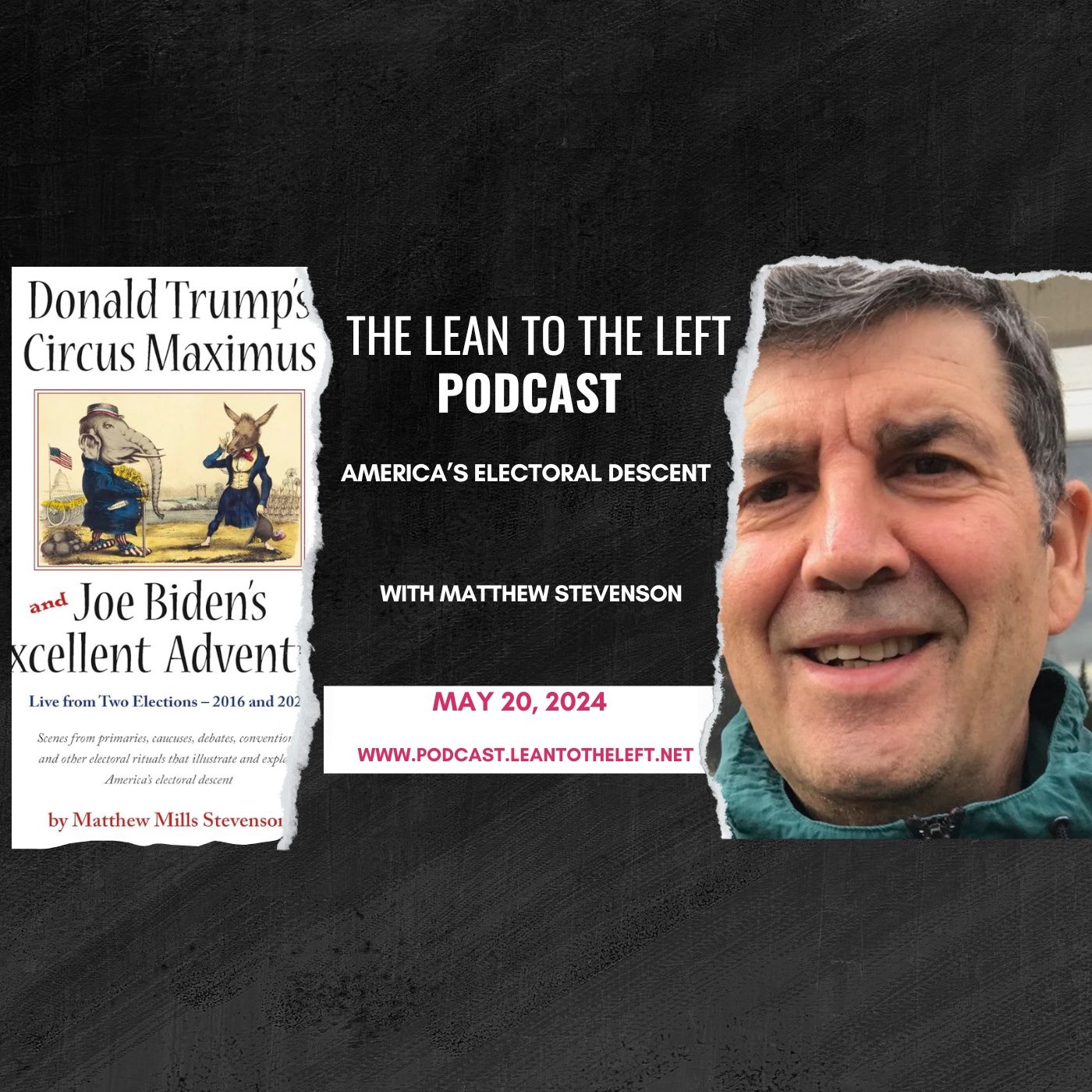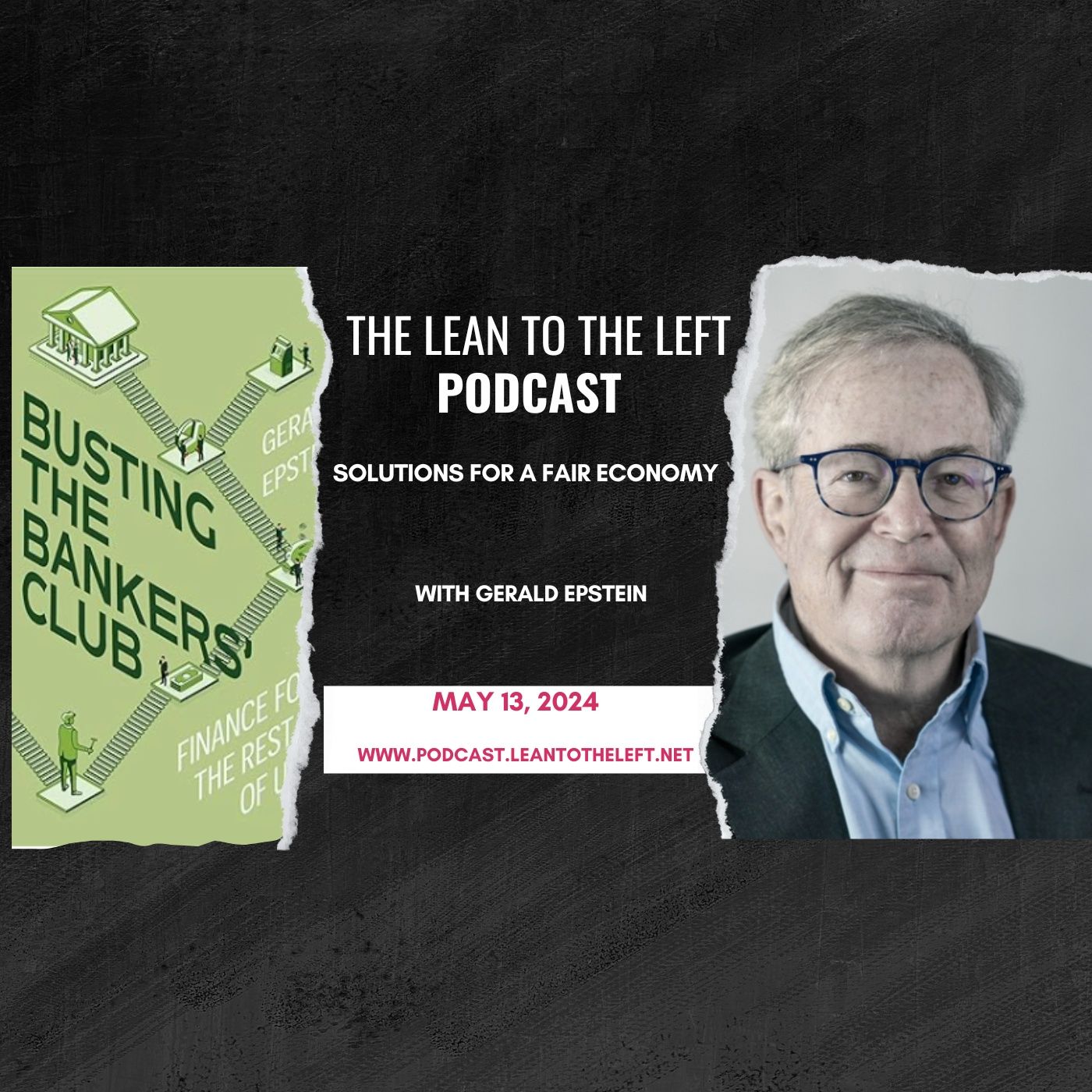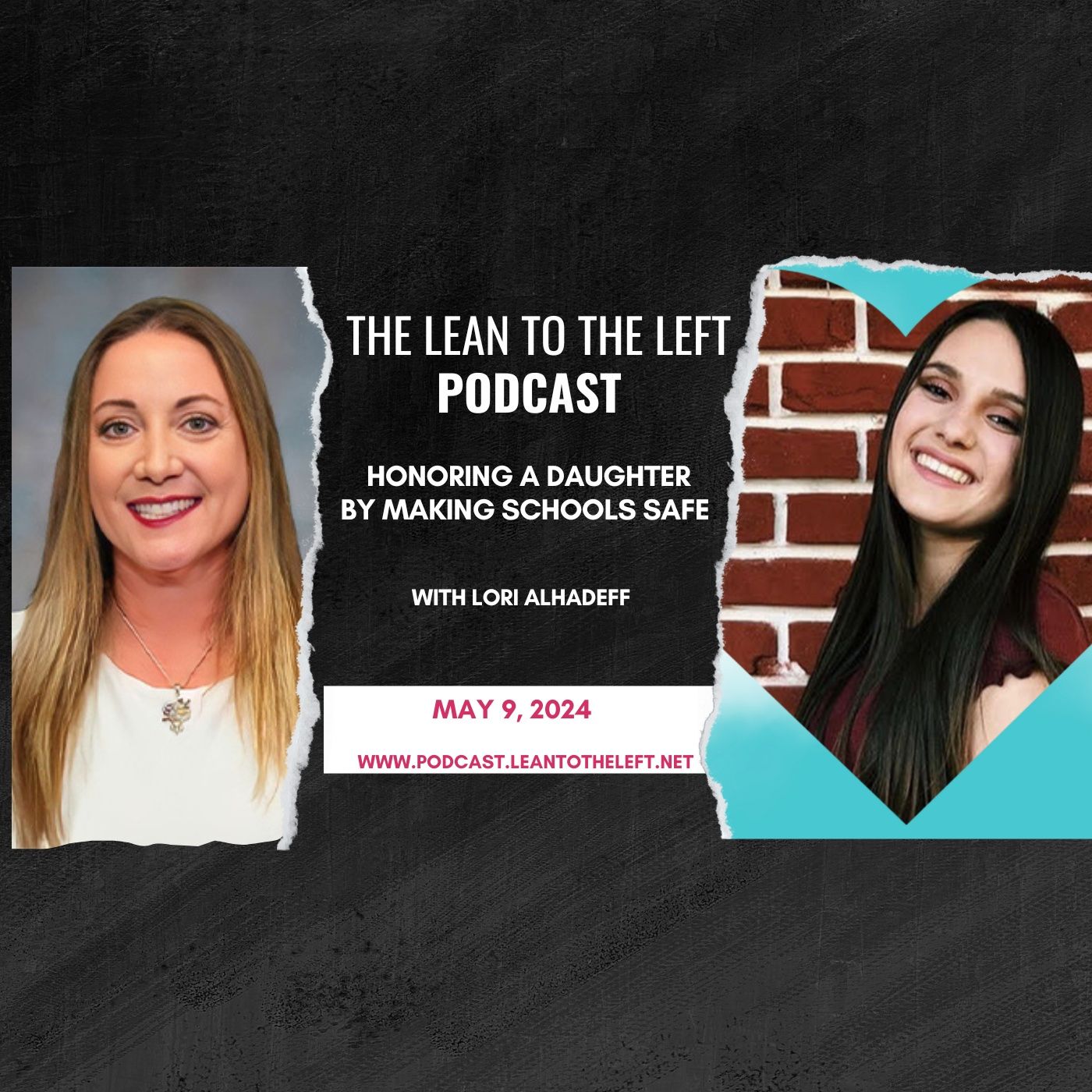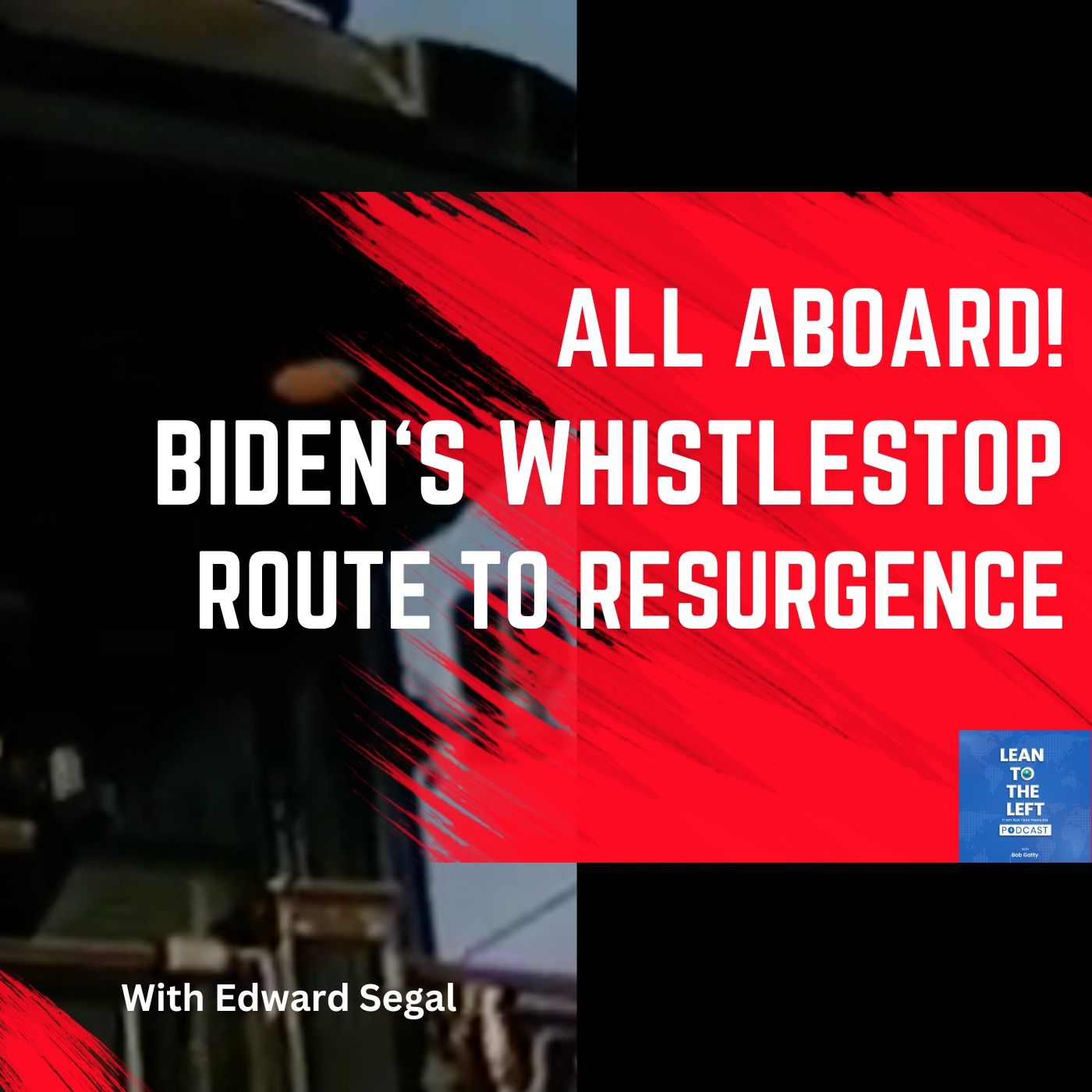The conversation includes insights from Edward Segal, a political strategist and historian, who suggests that Biden could benefit from conducting a whistle stop campaign tour, a strategy that has historical significance in American politics.
Segal, who has recently published a book titled 'Whistle Stop Politics, Campaign Trains and Reporters Who Covered Them', shares his expertise on the impact of whistle stop tours. He draws parallels between Biden and President Harry Truman, who successfully used such tours to connect with voters.
The discussion also touches on modern campaign strategies, the potential role of social media in revitalizing whistle stop tours, and Siegel's own experiences in political campaigning. The conversation concludes with details about Segal's book and his plans to propose the idea of a whistle stop tour to the Biden campaign.
00:00 Biden's Reelection Challenges and the Potential of a Whistle Stop Campaign
00:40 Introducing Edward Siegel: A Political Strategist with a Unique Perspective01:36 Edward's New Book: A Deep Dive into Whistle Stop Politics
02:35 The Strategic Advantage of a Biden Whistle Stop Tour
04:56 Historical Success Stories of Whistle Stop Campaigning
06:51 The Power of Social Media in Modern Campaigning
07:19 Biden's Missteps with TikTok and Opportunities for Improvement
08:43 Edward's Personal Experience and Insights on Campaign Trains
11:49 The Impact of Campaign Trains in American Political History
16:06 Final Thoughts and the Future of Whistle Stop Campaigning
Become a supporter of this podcast: https://www.spreaker.com/podcast/the-lean-to-the-left-podcast--4719048/support.
Show Notes
Reviving Whistle Stop Campaigns: Edward Siegel on Biden's Re-election Strategy
The Lean to the Left podcast features an interview with Edward Siegel, a seasoned political strategist and historian, discussing President Biden's potential re-election strategy amidst concerns over his age and performance. Siegel suggests that Biden could benefit from a whistle stop campaign tour, drawing parallels to historic elections and citing his own expertise and recent book, 'Whistle Stop Politics, Campaign Trains and Reporters Who Covered Them'. He believes that such a tour could be a pivotal move for Biden, leveraging the personal connection and media coverage that come with train campaigning, and discusses the strategic timing and impact of announcing this plan. Siegel's insights also touch on the modern advantages of social media in campaigning and the importance of aligning campaign strategies with the candidate's image.
00:00 Biden's Reelection Challenges and the Potential of a Whistle Stop Tour
00:40 Introducing Edward Siegel: Political Strategist and Whistle Stop Campaign Expert
01:36 Edward's New Book on Whistle Stop Politics
02:34 The Strategy Behind Biden's Potential Whistle Stop Campaign
04:56 Historical Success Stories of Whistle Stop Campaigning
06:51 The Impact of Social Media on Modern Campaigning
07:19 Biden's Missteps with TikTok and Missed Opportunities
08:43 Edward's Personal Experience with Campaign Train Tours
11:49 The Educational Value of Edward's Book on Campaign Trains
16:03 Final Thoughts and the Future of Whistle Stop Campaigning
Show Transcript
Edward Segal: Could Biden be on Track to Victory?
[00:00:00] Bob Gatty: The polls are indicating that president Biden is in for a tough time in his race for reelection with many voters, including some Democrats wishing there was an alternative. The president's age is a key factor generating this concern, but that's also a factor that should work. In his favor, considering his accomplishments and the wisdom accrued from these many years of public service, how could Biden turn things around?
[00:00:30] We have with us today, a longtime political strategist and historian to help us find out. So stay with us.
[00:00:40] Edward Siegel has served as key. The campaign manager, press secretary, and aide to Democratic and Republican presidential and congressional candidates. He's with us for the second time on the Lean to the Left podcast. We found the first one so fascinating we just had to bring him back.
[00:01:01] Anyway, Edward's the top expert on the history of whistle stop campaign trains and their impact on elections, politics, journalism, and culture. In fact, he's one of the few people to organize a modern day whistle stop campaign train tour.
[00:01:19] And he's convinced that such a tour could significantly help the president in his run for re election. Edward, thanks for joining us today, my friend. Appreciate it.
[00:01:30] Edward Segal: Great to be back with you again, Bob.
[00:01:32] Bob Gatty: Hey, Edward. You've had some new things happen since our last conversation. Your book is out. Tell us about your book.
[00:01:40] Edward Segal: Yeah, I'm excited to share the news that my book, "Whistle Stop Politics, Campaign Trains and Reporters Who Covered Them," has just been published. It's available in e book and hardcover editions on Amazon, Barnes Noble, and wherever you buy books online. And also to mark the publication of the book, I just launched a new website at whistlestoppolitics. com. The website will serve as a resource of information, background information, materials, photos, and recollections about campaign trains and the role of campaign trains in American politics. So it also includes a chronology of all the whistle stopping campaign trains that have been held since 1836. So there's a lot of good information about campaign train history.
[00:02:27] And I hope people have a chance to visit it at whistlestoppolitics. com.
[00:02:33] Bob Gatty: Okay, that's great news. Now let's get into it. How and why should Biden conduct a whistle stop campaign tour?
[00:02:40] Edward Segal: Traditionally, campaigning from the back of a train has been a great way for politicians to connect with voters, generate enthusiasm, generate news coverage.
[00:02:51] And I think that if President Biden does a whistle stop tour this year, it could really help be a tipping point for voters. For his race for the White House, of course, this would not be the first time that Biden campaigned by train and way back in 1987 when he ran for the White House, he launched his campaign by having a whistle stop tour launch from a train station in Wilmington, Delaware .In 2020 when he ran for the White House again, he campaigned by train for several hours, several days in Ohio and Pennsylvania. I really think that campaign train tours as it has been in the past can be a tipping point of victory for President Biden this year.
[00:03:38] Bob Gatty: Do you have any indication that such plans are in the works?
[00:03:42] Edward Segal: Nothing yet, but I wouldn't be surprised if the planning is underway and they would not want to announce it until it's a done deal. Also announcing it too soon could give others an idea to run their own counter campaign.
[00:04:00] Trump might jump on that and do his own train to try to usurp and what they call a counter programming President Biden. So I think timing is important. Traditionally, October has been a peak time of the campaign for candidates to do these tours, so I wouldn't be surprised if the White House is planning a tour, but would not announce it closer to October, and that could be the turning point in his race for the White House.
[00:04:30] Bob Gatty: Are you going to sign up to help him out?
[00:04:33] Edward Segal: Operators are standing by as they say, I would really jump at the chance to be on the train. I would not mind being an advisor if they want to help ensure the success of the train. At the very least I'd love to be on the train and update my book and and write about it as I have done in the past for for other campaign train tours.
[00:04:55] Bob Gatty: Okay. Can you give us some examples of how whistle stop campaigning has helped presidential candidates in the past?
[00:05:02] Edward Segal: The classic example, of course, is President Harry Truman, when he conducted his underdog campaign train tour across the country, not once, but, not twice, but several times in different parts of the country.
[00:05:16] And hindsight, of course, is always 20 20. Looking back on that campaign train, it's obvious that it helped whip up interest and enthusiasm, turned out hundreds, if not thousands of people at train stations across the country, generated great press coverage about his tour, was a great for him for him to talk about his policies, his accomplishments and of course he famously criticized what he said was the do nothing congress and that criticism and the news coverage that was generated about the tour and his comments that was a tipping point that helped him win the white house that year against all odds
[00:05:59] Bob Gatty: Seems like Biden could use such a whistle stop campaign tour to promote some of his accomplishments, right?
[00:06:08] Edward Segal: There's a lot of parallels between Harry Truman and Joe Biden. Both faced, or are facing, a lot of criticism. Their numbers are not great with the public opinion polls, they're subject to a lot of criticism and second guessing by the media, by the public, and by their opponents. And I think if Biden conducts a campaign train tour, it would be a great way to campaign and think out of the box.
[00:06:37] It'd be a great way to generate news coverage. Enthusiasm. And frankly, I think because of social media, a Biden campaign tour would generate even more coverage than his past tours. Why? Because the hundreds or thousands of people that would show up at each one of these stops, they would be taking pictures, they would be doing selfies, putting videos on YouTube and TikTok.
[00:07:02] And I think they could actually saturate the internet. With news coverage and videos and selfies of them with the President of the United States. That's a great tactic, and I think social media could be another tipping point used properly for President Biden. Some people might have known or seen Biden's use of TikTok the other day, and he did not get a lot of great reviews for what he did or what he said on TikTok, which raises a really important issue when conducting a campaign tour, you need to use what I call age appropriate tactics and strategies and techniques, right? A campaign tour would be much more appropriate TikTok doc for President Biden.
[00:07:48] Bob Gatty: Yeah. Yeah. What was that about? What was he promoting chocolate chip cookies or something?
[00:07:55] Edward Segal: I only saw clips of it that was on different news programs, but he said something about chocolate chip cookies and it was not a good use of his time. Ironically, he turned down a great opportunity to talk to tens of millions of people when he said no to the opportunity to do a live interview on the broadcast of the super bowl and that people are still scratching their heads why he turned that down. That's a great way to connect and for whatever reason he turned that down and just decided to do the TikTok.. So I think that was a strategic mistake.
[00:08:31] Bob Gatty: Yeah. Yeah. Maybe he'll hire you and to help him run a whistle stop tour and you can straighten him out on one of these things, right?
[00:08:41] Edward Segal: Yes. And it wouldn't be my first time. I actually helped organize a campaign train tour in Oklahoma several years ago, and that's what really got me interested in the topic in the first place, which led to me writing this book.
[00:08:54] Tell us about that campaign tour in Oklahoma that you did.
[00:08:59] Bob Gatty: Who was that for?
[00:09:00] Edward Segal: It was for Congressman Mickey Edwards, who was a Republican member of Congress. And by the way, in my career, I've worked for both Democrats and Republicans. Oh, switch hitter, huh? I was a hired gun and it was a great opportunity.
[00:09:15] Some of the congressmen would brag that they hired me from another congressman, went from a different party. But as a press secretary to Mickey Edwards he was facing A primary without any opponents and the press was not interested in covering his reelection campaign. Okay, so he asked me to come up with a way to generate some press coverage.
[00:09:35] I knew Amtrak had serviceable tracks, but no trains running. And we wound up already organizing a train. generating even national publicity. And I think that was another tipping point in his campaign. And he was elected, reelected to the House of Representatives that year.
[00:09:53] Bob Gatty: Okay.
[00:09:54] So that's that's a great example of how lemons can be turned into lemonade if you are smart in politics, right?
[00:10:03] Edward Segal: That's a great way to put it.
[00:10:05] Bob Gatty: Okay. Now, do you really think that doing this for, by Biden would make a, much of a difference in the overall scheme of things?
[00:10:17] Edward Segal: It certainly wouldn't hurt.
[00:10:18] Yeah, and his challenge is to do something that's different and unusual beyond the traditional speech at an auditorium or in a sports setting or another venue and I think the novelty of campaign train tour is another reason why it would be Attractive to the media and turn out people. It'd be a great way to connect with people of all ages And considering the demographics of people he wants to reach, who his natural audience is, this would be a great effective way to generate energy, enthusiasm, news coverage, and importantly, connect with people in a different way that has not been done in most presidential campaign campaigns in recent years.
[00:11:05] Bob Gatty: If you get to help him out and you get to be on that train, I think somehow we could We can figure out some way that we could, have you back on this little show that we have here, maybe from the train. I don't know. What do you think?
[00:11:22] Edward Segal: Oh, I'd love to do a live broadcast, a live podcast.
[00:11:26] On the back of the train, interview President Biden and his campaign staff, even talk to some of the reporters. I think that would be a great opportunity and I would certainly take you up on that generous invitation.
[00:11:40] Bob Gatty: Oh, that'd be great. I'd love to do that. I think we'd get some, a lot of attention from doing that and we'd help out too.
[00:11:49] Tell us a little bit about what your book covers.
[00:11:53] Edward Segal: My book spans the history of campaign trains in American politics. It starts way back in 1836 when Harrison was running for president, and he was the first candidate running for the White House to campaign by train. Of course, it didn't go too far because we didn't have that many train tracks.
[00:12:13] First train tracks were actually laid down in the early 1830s. So he went from Baltimore to Ellicott city, which today, according to maps is about 20 miles or so. Yeah.
[00:12:27] Bob Gatty: Go ahead. I used to live there. It's not far.
[00:12:31] Edward Segal: But the book takes a 360 degree view of campaign trains. I interviewed or write about the candidates, their staff, the reporters the good, the bad, and the ugly things that happened on the campaign train tour.
[00:12:46] And I also show the story in addition to telling the story. I have dozens of photos or images about campaign trains politicians, their staff, and I worked with the Library of Congress, who is very helpful in finding and sharing with me photos and also Herblock, who was a famous Pulitzer Prize winning editorial cartoonist for the Washington Post.
[00:13:12] And thanks to his foundation, I was able to use a dozen or so of his cartoons with a campaign train theme, and they're interspersed throughout the book. So it's a great education about the history of campaign trains, and I hope people will buy it and read it, and it will help remind them or educate them about what I think is a rapidly fading memory about the important roles campaign trains played in U. S. elections.
[00:13:38] Bob Gatty: That's really impressive that you are able to use the Herblock cartoons. It was just fan He was a fantastic editorial cartoonist.
[00:13:48] Edward Segal: He was there for the Washington Post for decades created thousands and thousands of cartoons.
[00:13:54] Some of them are, the originals are in the Library of Congress and others, of course, are at the Herblock Foundation. I was very fortunate to work with the Library of Congress and its foundation to include these photos in the book. And also, some of them are online. And different places on the internet.
[00:14:13] So people are interested in learning more about Herblock and his great work. I think that could be an education in itself.
[00:14:20] Bob Gatty: Sure. Now you say your book is available on Amazon and is it in bookstores and so on?
[00:14:28] Edward Segal: It's wherever people buy their books online. Okay. It's on Amazon. Barnes and noble bookshop independent bookstores can get it and it's published through Ingram, which means it's also in the catalog of the brick and mortar stores across the country.
[00:14:44] Okay. I also have plans to produce a audio book. I'm trying to make the content as easily accessible to everybody. If they like a physical copy, they want to read it online, or they like to listen to the book will be available in different formats to make it as easy and as affordable as possible for people to learn about campaign trains and its role in American political history.
[00:15:09] Bob Gatty: Right.
[00:15:10] Okay. Once again, the website is.
[00:15:14] Edward Segal: WhistleStopPolitics. com. That's WhistleStopPolitics. com. It has links to buy the book, links to a chronology of whistle stopping politicians over the past 185 years or so, and stories that I have found since completing the research of the book. There's even more stories for people to read and appreciate, and that's all available at whistlestoppolitics. com.
[00:15:40] Bob Gatty: Okay, I noticed that your book cover, the title is Whistle- Stop. Is it the same in the URL for your website, or is it all just one word?
[00:15:50] Edward Segal: It, the URL is all one word, no hyphen.
[00:15:53] Bob Gatty: Okay, so it's Whistlestop () One Word) Politics.
[00:15:57] Edward Segal: All one word. WhistleStopPolitics. com.
[00:16:00] Bob Gatty: Okay. Good. Excellent. Okay, Edward. You got anything else you want to add?
[00:16:06] Edward Segal: I hope people will read the book. I think it'll help increase their understanding and appreciation about this rapidly disappearing part of American political history. And one of the reasons I wrote the book was to help preserve these stories, these anecdotes, and these photos.
[00:16:24] And I think that learning about How candidates campaign for the White House in the past can help provide a really interesting perspective on how candidates are campaigning for the White House this year and in years to come.
[00:16:38] Bob Gatty: Do you have any plans to reach out to the Biden campaign to suggest this?
[00:16:43] Edward Segal: I do have contacts in the political world.
[00:16:46] In fact, I interviewed some of them for the book. Mike McCurry, who was a spokesperson for President Clinton. He was actually nice enough to share his recollections. Yes, I will be reaching out to the White House and my political contacts and hopefully we can connect the make the connections and spark some interest in Biden campaigning by train again this year.
[00:17:09] Bob Gatty: All right. That'd be just great. So thanks very much Edward. I appreciate you joining us again on the Lean to the Left podcast.
[00:17:18] Edward Segal: I enjoy the conversation and maybe next time we'll be talking from a campaign train trip.
[00:17:23] Bob Gatty: That would be great. That really would be.
Listen On
Also In Season 4
-

The Trump-Biden Conundrum: A Deep Dive With Matthew Stevenson
In this episode of the Lean to the Left podcast, host Bob Gatty is joined by aut -

Challenging the Bankers Blub: The Fight for an Equitable Financial System
In this episode of the Lean to the Left Podcast, host Bob Gatty interviews Geral -

Lori Alhadeff: A Mother Fights for Safer Schools
In this episode of the Lean to the Left podcast, Lori Alhadeff shares the heartb


Comments & Upvotes